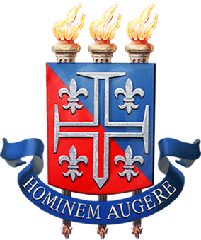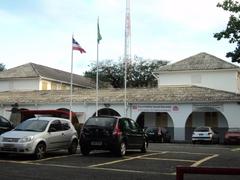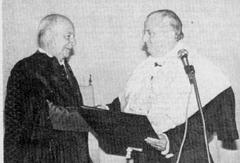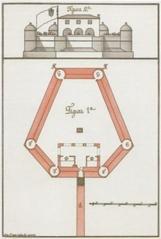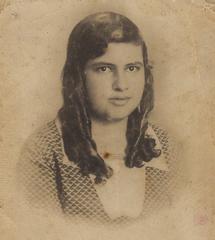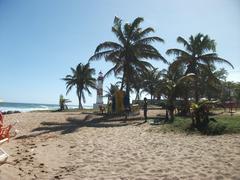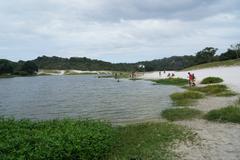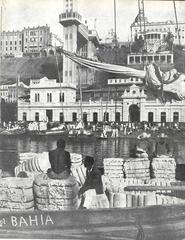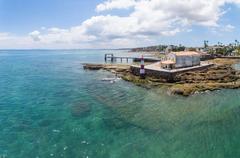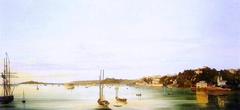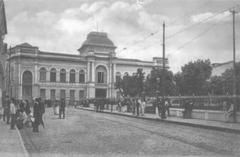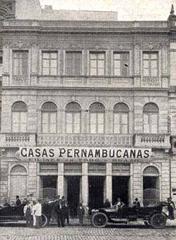
Comprehensive Guide to Visiting Salvador, Bahia, Brazil
Date: 13/08/2024
Captivating Introduction
Welcome to Salvador, Bahia—a place where every street corner dances to the rhythm of Afro-Brazilian culture and every aroma tells a tale of history and tradition. Imagine a city where colonial architecture meets vibrant street art, where the beat of samba-reggae fills the air, and where the ocean’s whispers merge with the chants from Candomblé temples. That’s Salvador for you, a city that’s more than just a destination; it’s an experience waiting to be lived (National Geographic) (Gateway to Brazil).
Salvador, the jewel of Bahia, Brazil, is a vibrant tapestry woven with threads of history, culture, and adventure. From the historic Pelourinho district, where colonial buildings stand as colorful sentinels of the past, to the bustling Mercado Modelo, where capoeira dancers defy gravity, Salvador is a city that engages all your senses. The city’s unique blend of African, Portuguese, and indigenous influences creates a cultural mosaic that is both captivating and enlightening.
Ready to embark on an unforgettable journey through Salvador? Let’s dive into its hidden gems, savor its culinary delights, and soak up the local customs. Whether you’re exploring the historic Pelourinho, experiencing the spiritual ambiance of the Igreja do Bonfim, or simply enjoying a sunset at Farol da Barra, Salvador promises an adventure like no other. So grab your walking shoes, bring your curiosity, and let’s discover the magic of Salvador together. And remember, to make the most of your trip, download the Audiala tour guide app for insider tips and interactive maps. Your Salvador adventure awaits!
Table of Contents
- Unveiling Salvador, Bahia, Brazil: A Vibrant Tapestry of Culture, History, and Adventure
- Welcome to Salvador: Where Every Street Tells a Story
- Pelourinho: The Historic Heartbeat
- Elevador Lacerda: The Sky’s the Limit
- Mercado Modelo: Shop ‘Til You Drop
- Igreja do Bonfim: Tie a Ribbon, Make a Wish
- Farol da Barra: Sunset Splendor
- Museu Afro-Brasileiro: A Cultural Hug
- Solar do Unhão: Art and Serenity
- Dique do Tororó: Nature Meets Spirituality
- Praia do Porto da Barra: Beach Bliss
- Rio Vermelho: Nightlife Nirvana
- Local Secrets and Hidden Gems
- Engage Your Senses
- Interactive Adventures
- Cultural Etiquette 101
- Practical Info with a Twist
- Pop Culture Connections
- Time-Based Itineraries
- Local Lingo Lessons
- Seasonal Highlights
- Myth Busting and Surprises
- Storytelling Magic
- FAQs and Fun Facts
- Call to Action
Unveiling Salvador, Bahia, Brazil: A Vibrant Tapestry of Culture, History, and Adventure
Welcome to Salvador: Where Every Street Tells a Story
Hey there, fellow traveler! Ready to dive into the colorful chaos that is Salvador? Picture this: cobblestone streets echoing with the rhythm of drums, the tantalizing aroma of acarajé frying in the distance, and colonial buildings painted in hues so vibrant they could make a rainbow blush. Yep, that’s Salvador, the jewel of Bahia, Brazil. Let’s embark on this adventure together, shall we?
Pelourinho: The Historic Heartbeat
First stop, Pelourinho—lovingly known as ‘Pelô’. This UNESCO World Heritage Site is Salvador’s pulsating heart. Imagine walking through time, surrounded by colonial architecture dressed in vibrant pastels. The São Francisco Church and Convent is a must-see, with its baroque architecture and gold-leaf interiors that could put Fort Knox to shame. And hey, try spotting the hidden alleyways where local musicians jam. It’s like finding a secret concert!
Elevador Lacerda: The Sky’s the Limit
Next up, the Elevador Lacerda. This isn’t just any elevator—it’s a time machine connecting Salvador’s lower city (Cidade Baixa) with the upper city (Cidade Alta). Built in 1873, it whisks you up 72 meters in 30 seconds. And the view? Simply breathtaking. Snap a panoramic shot of the Baía de Todos os Santos, and you’ll have Instagram gold.
Mercado Modelo: Shop ‘Til You Drop
At the base of Elevador Lacerda, you’ll find Mercado Modelo. This market is a treasure trove of Bahian crafts, souvenirs, and mouth-watering treats. The building itself has a storied past, once serving as a customs house. Don’t miss the live capoeira shows—martial arts meets dance in a jaw-dropping spectacle.
Igreja do Bonfim: Tie a Ribbon, Make a Wish
Feeling spiritual? Head to the Church of Nosso Senhor do Bonfim. This site is a magnet for pilgrims who tie colorful ribbons (fitas) to the gates, each one a wish for a miracle. The interior is adorned with ex-votos—tokens of gratitude for answered prayers. It’s a beautiful blend of Catholicism and Afro-Brazilian faiths that will leave you in awe.
Farol da Barra: Sunset Splendor
For a slice of history and a killer sunset, Farol da Barra is your spot. This lighthouse, dating back to 1698, is one of the oldest in the Americas. It’s part of the Santo Antônio da Barra Fort, home to the Nautical Museum of Bahia. Maritime artifacts and stunning ocean views? Yes, please!
Museu Afro-Brasileiro: A Cultural Hug
Dive into the rich tapestry of Afro-Brazilian culture at the Afro-Brazilian Museum. Located within the Federal University of Bahia, this museum showcases African art, religion, and history. The Candomblé artifacts are a highlight, offering a deep dive into this spiritual practice.
Solar do Unhão: Art and Serenity
Solar do Unhão is a 17th-century gem that now houses the Museum of Modern Art of Bahia (MAM-BA). Wander through contemporary Brazilian art exhibits, then relax by the waterfront. It’s a serene escape with a side of artistic inspiration.
Dique do Tororó: Nature Meets Spirituality
Love nature with a dash of spirituality? Dique do Tororó is your haven. This artificial lake is dotted with sculptures of Orixás, deities from Candomblé. Paddle boating, jogging, or simply soaking in the scenery—this spot offers it all.
Praia do Porto da Barra: Beach Bliss
For a beach day like no other, head to Porto da Barra Beach. Known for its calm waters and vibrant vibe, it’s perfect for swimming and sunbathing. Did you know this was the landing site of the first Portuguese settlers in 1500? Now you do!
Rio Vermelho: Nightlife Nirvana
When the sun sets, Rio Vermelho comes alive. This neighborhood is a whirlwind of bars, restaurants, and music venues. Don’t miss the Festa de Iemanjá on February 2nd, celebrating the goddess of the sea with flowers, gifts, and lots of revelry.
Local Secrets and Hidden Gems
Ready for some insider tips? Check out the Casa do Rio Vermelho, the former home of writer Jorge Amado. Or explore the lesser-known Igreja de Nossa Senhora do Rosário dos Pretos, built by enslaved Africans. And for a quirky adventure, try finding the hidden graffiti art scattered around the city. It’s like a treasure hunt with a cultural twist!
Engage Your Senses
Salvador isn’t just a feast for the eyes—it’s a symphony for all your senses. Listen to the beat of drums in Pelourinho, smell the sizzling street food, touch the cool stone walls of ancient churches, and taste the explosion of flavors in every bite of moqueca. Salvador is a sensory overload in the best possible way.
Interactive Adventures
Want to make your visit even more fun? Try these mini-quests: find the best acarajé stand (hint: follow the locals), capture a photo with all the street art murals you can find, or join a capoeira class and learn some moves. Challenge accepted?
Cultural Etiquette 101
Quick tips for blending in: greet with a warm ‘bom dia’ (good morning), respect local customs, and embrace the laid-back Bahian pace of life. And remember, a smile goes a long way!
Practical Info with a Twist
Need the 411? Salvador’s climate is tropical, so pack light and breezy. Use local buses for an authentic experience, or try ‘mototaxis’ for a thrilling ride. And always, always stay hydrated—coconut water is your best friend.
Pop Culture Connections
Ever watched ‘City of God’? Parts of it were filmed in Salvador. Or read Jorge Amado’s novels? His stories bring the city’s spirit to life. Dive into these cultural references for a deeper connection to the city.
Time-Based Itineraries
How about a themed journey? Try the ‘Historic Trail’ for a day of churches and museums, or the ‘Beach Bum Route’ for endless sun and sand. Pick your adventure and let Salvador surprise you.
Local Lingo Lessons
Brush up on some local slang: ‘Axé’ (blessing), ‘Beleza’ (cool), and ‘Massa’ (awesome). Drop these into conversation and watch the locals light up. Plus, it’s a great way to break the ice.
Seasonal Highlights
Salvador transforms with the seasons. Summer brings beach parties, while winter is all about the Festa Junina with its bonfires and traditional dances. No matter when you visit, there’s always a celebration waiting for you.
Myth Busting and Surprises
Think Salvador is all about the beaches? Think again! It’s a city of contrasts, where modernity meets tradition at every corner. Did you know it’s one of the oldest cities in the Americas? Or that it’s a melting pot of cultures and religions? Prepare to be pleasantly surprised.
Storytelling Magic
Here’s a tale: Legend has it that the Elevador Lacerda was once a secret meeting spot for lovers from the upper and lower cities. Today, it’s where you can fall in love with Salvador’s skyline. Every place here has a story—what will yours be?
FAQs and Fun Facts
- Q: What’s the best time to visit Salvador? A: Anytime! But for a mix of culture and sunshine, aim for February during Carnival.
- Q: Is Salvador safe for tourists? A: Absolutely. Just follow general travel safety tips and stay in well-populated areas.
- Q: Must-try dish? A: Acarajé. It’s a spicy, deep-fried ball of heaven.
Call to Action
Ready to explore Salvador like a local? Download the Audiala tour guide app for insider tips, interactive maps, and more. Your adventure awaits—let’s make it unforgettable!
Cultural Insights into Salvador, Bahia, Brazil
Welcome to Salvador: Where Afro-Brazilian Magic Begins
Ever wondered where the heartbeat of Afro-Brazilian culture truly lies? Welcome to Salvador, Bahia, the city where every street corner sings a song of African heritage. Picture this: vibrant colors, the rhythm of drums, and the aroma of spicy dishes wafting through the air. Intrigued? Let’s dive into the magic that makes Salvador a cultural gem (National Geographic).
Afro-Brazilian Heritage: The Soul of Salvador
Salvador isn’t just a city; it’s a living, breathing testament to Afro-Brazilian culture. As one of the first and largest slave ports in the Americas, Salvador has a rich history that has shaped its vibrant culture. Imagine walking through streets where the largest population of Afro-descendants outside Africa resides, each corner echoing tales of resilience and celebration (National Geographic).
Samba, Samba-Reggae, and Axé: The Rhythms of Salvador
Music in Salvador is like oxygen—essential and everywhere. From the pulsating beats of samba to the unique samba-reggae, the city’s soundscape is a musical paradise. Ever tried your hand at drumming? The Escola Olodum offers percussion and dance classes that let you feel the rhythm of Black identity celebrated since the 1970s. And don’t miss the city’s Carnival, where the streets come alive with blocos (street bands) and vibrant performances (National Geographic).
Culinary Delights: Taste the Tradition
Get ready to tantalize your taste buds with Salvador’s culinary delights. Imagine biting into Acarajé, a deep-fried ball of black-eyed pea dough filled with shrimp, or savoring Moqueca, a rich seafood stew made with coconut milk and palm oil. These dishes are not just food; they’re a journey back to the culinary traditions of Ghana, Benin, and Sierra Leone (Gateway to Brazil).
Candomblé: A Spiritual Mosaic
In Salvador, spirituality is a rich tapestry woven with African and Catholic threads. Candomblé, an Afro-Brazilian religion, is widely practiced here, with terreiros (temples) scattered throughout the city. Picture yourself at the Festa de Iemanjá on February 2nd, where offerings are made to the goddess of the sea, blending the spiritual and the festive (Virtual Museum of Lusophony).
Festivals and Celebrations: The Heartbeat of the City
Salvador knows how to celebrate. From the world-famous Carnival to Black Consciousness Day on November 20th and the Festa Junina in June and July, the city’s calendar is packed with events that honor its rich cultural heritage. Each festival is a sensory explosion of music, dance, and traditional foods (Virtual Museum of Lusophony).
Historical Significance: A Walk Through Time
Walking through Salvador is like stepping into a history book. As Brazil’s first capital and a major port for the slave trade, the city’s colonial architecture and UNESCO World Heritage sites like the Pelourinho district tell tales of a bygone era. Don’t miss the Afro Brazil Museum for a deep dive into the African rituals and traditions that birthed Bahian culture (National Geographic).
Art and Craft: A Burst of Creativity
Salvador’s art scene is a vibrant reflection of its African heritage. From beadwork to pottery and textiles, local markets are treasure troves of traditional crafts. The Mercado Modelo is a must-visit for those looking to take a piece of Salvador’s artistic soul home (Layer Culture).
Speak Like a Local: Language and Lingo
While Portuguese is the official language, Salvador’s Afro-Brazilian culture has left its mark on the local lingo. Words and phrases of African origin pepper everyday conversation. Want to impress the locals? Learn a few key phrases and slang words. For example, “Axé” (ah-shay) is a Yoruba word used to express positive energy (Brazil City Guides).
Fashion and Attire: A Cultural Fusion
Salvador’s traditional attire is a blend of African and Portuguese influences. Women often don Baroque-inspired costumes adorned with lace and tropical jewelry. Imagine yourself in a long, hoop-shaped skirt with a layered turban on your head, especially on Fridays when many wear white in devotion to the Orixá, Oxalá (Gateway to Brazil).
Insider Tips: Navigate Like a Pro
When in Salvador, respect local customs and traditions. For instance, avoid taking photos during Candomblé ceremonies. Safety first: use trusted transportation apps like Uber and avoid walking alone at night. Opt for well-reviewed accommodations and keep your belongings secure (Brazil City Guides).
Seasonal Highlights: Salvador All Year Round
Salvador is a city for all seasons. Visit in summer for the epic Carnival, or in February for the Festa de Iemanjá. Each season brings its own unique events and phenomena, making Salvador a year-round destination.
Myth Busting and Surprises
Think you know Salvador? Think again! Did you know that Salvador has one of the largest open-air elevators in the world, the Lacerda Elevator, which connects the lower city to the upper city? Prepare to be surprised at every turn.
Sample Itineraries: Choose Your Adventure
Day 1: Morning - Start your day with a visit to the Pelourinho district. Afternoon - Take a percussion class at Escola Olodum. Evening - Enjoy a traditional dinner of Moqueca.
Day 2: Morning - Head to the Mercado Modelo for some shopping. Afternoon - Visit a Candomblé temple. Evening - Experience the vibrant nightlife in Rio Vermelho.
Local Legends and Stories
Salvador is a city of stories. Like the legend of the Baianas, the women who sell Acarajé dressed in traditional white garments. Each dish they serve is a piece of history, a tradition passed down through generations.
FAQ
Q: What is the best time to visit Salvador? A: The best time to visit is during the summer months, especially during Carnival in February.
Q: Is Salvador safe for tourists? A: Salvador is generally safe, but it’s advisable to use trusted transportation apps and avoid walking alone at night.
Conclusion: Your Salvador Adventure Awaits
Ready to explore Salvador? Download Audiala for an immersive experience of this vibrant city. With local secrets, interactive elements, and insider tips, Audiala makes your Salvador adventure unforgettable. Don’t just visit—experience Salvador like a local!
Call to Action
As your journey through Salvador, Bahia, comes to an end, it’s clear that this city offers more than just scenic views and historic landmarks. Salvador is a living museum, a vibrant testament to the resilience and creativity of its people. From thepulsating beats of samba-reggae in Pelourinho to the spiritual rituals of Candomblé, the city is a sensory feast that leaves an indelible mark on your soul (Virtual Museum of Lusophony) (Layer Culture).
Salvador’s unique blend of African, Portuguese, and indigenous influences creates a rich cultural tapestry that is both captivating and enlightening. Whether you’re savoring the spicy flavors of acarajé, exploring the artistic treasures at Solar do Unhão, or simply soaking up the sun at Praia do Porto da Barra, Salvador invites you to engage all your senses and immerse yourself in its vibrant culture.
So, are you ready to uncover the secrets of Salvador? Download the Audiala tour guide app and let it be your trusted companion as you explore this fascinating city. With expert insights, interactive elements, and insider tips, Audiala will help you make the most of your Salvador adventure. Don’t just visit Salvador—experience it like a local. Your unforgettable journey awaits!
References
- National Geographic, 2023, Inside Guide Salvador: Cradle of Brazil’s Afro-Brazilian Heritage
- Gateway to Brazil, 2023, Salvador: The Cultural Epicentre of Afro-Brazilian Culture
- Virtual Museum of Lusophony, 2023, Moments of Festivities in Salvador, Bahia, Brazil
- Layer Culture, 2023, Things To Do in Salvador, Brazil

